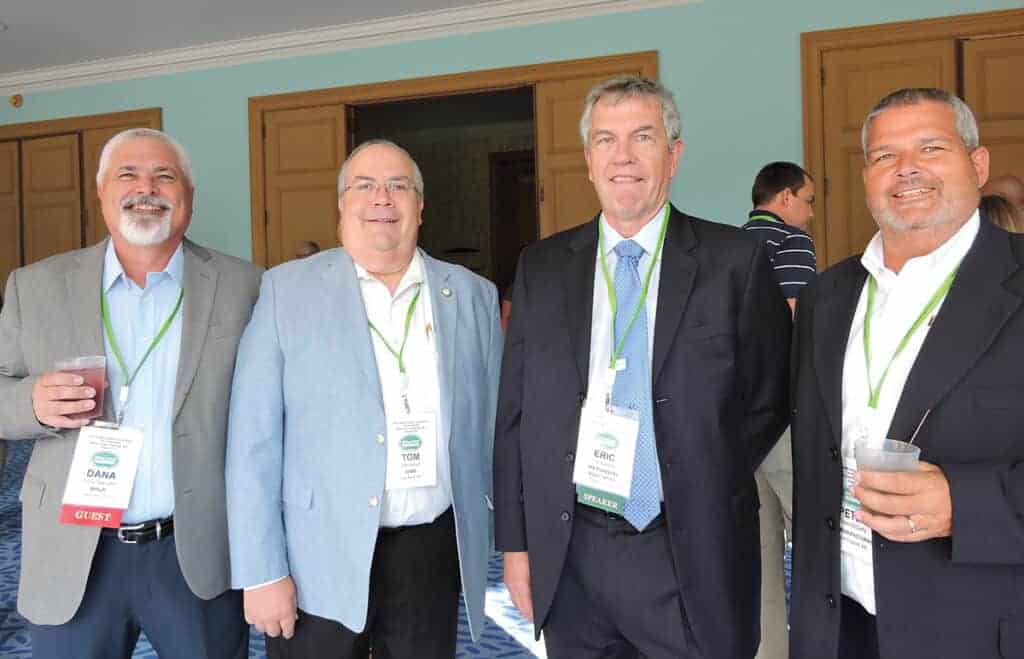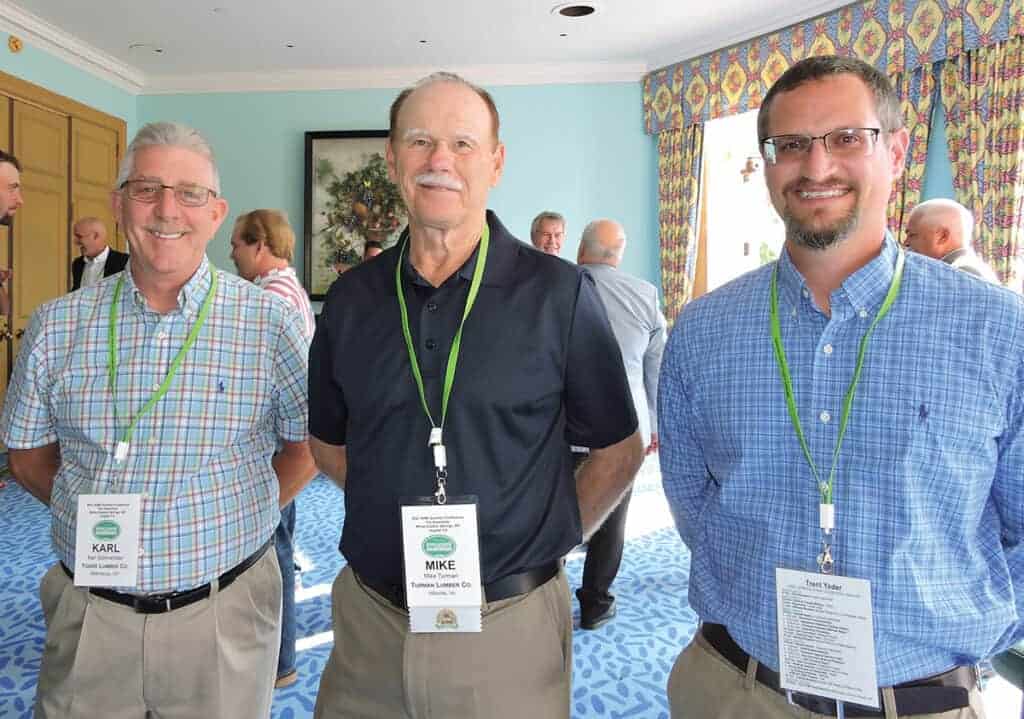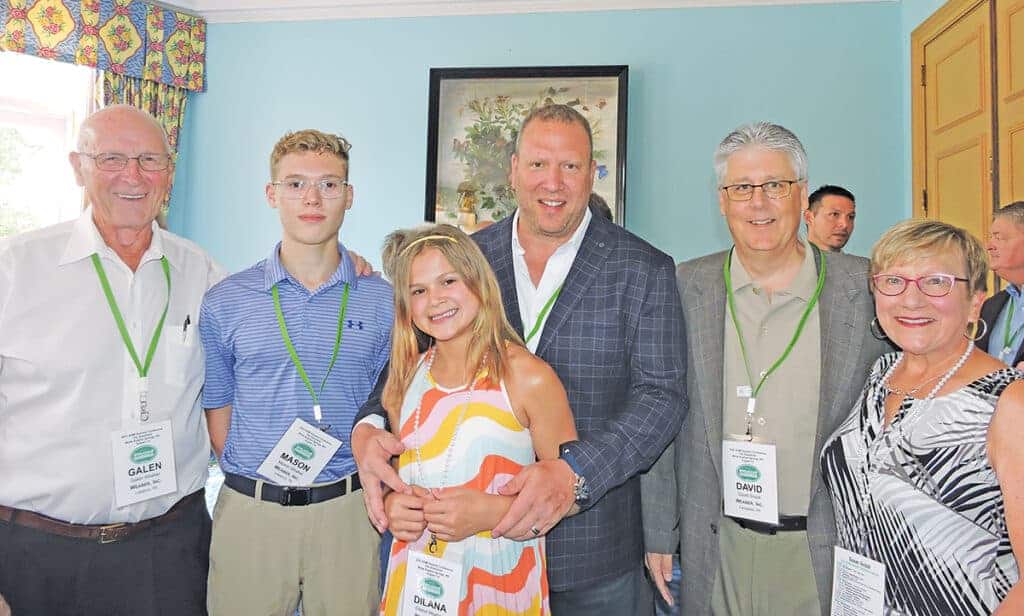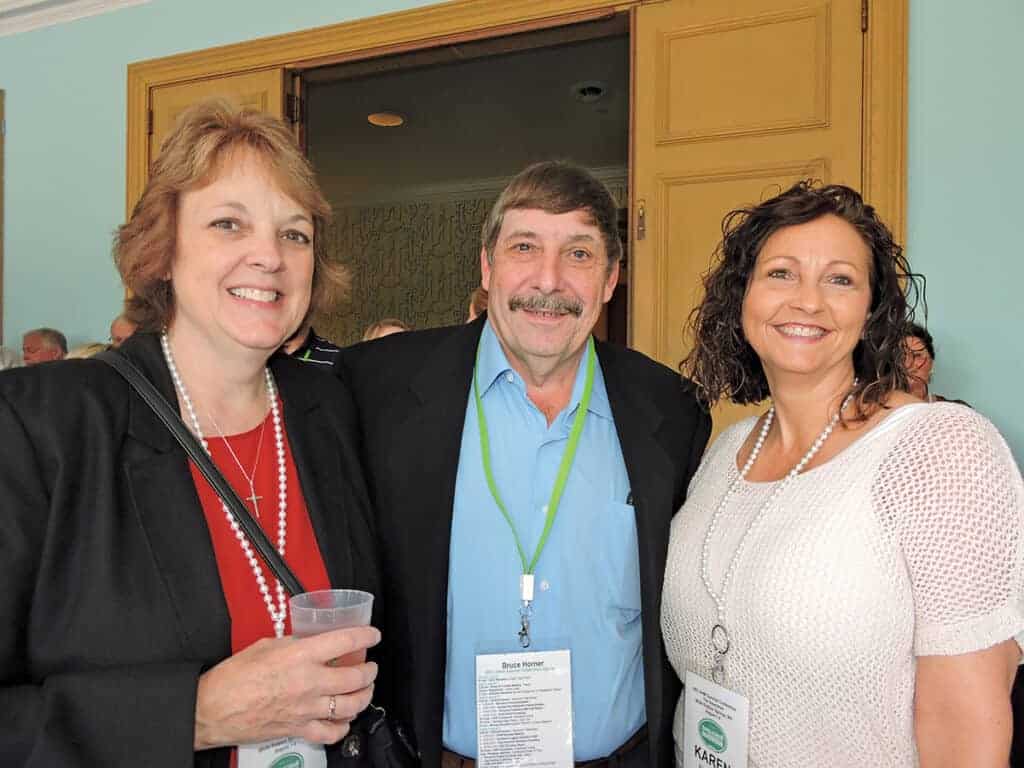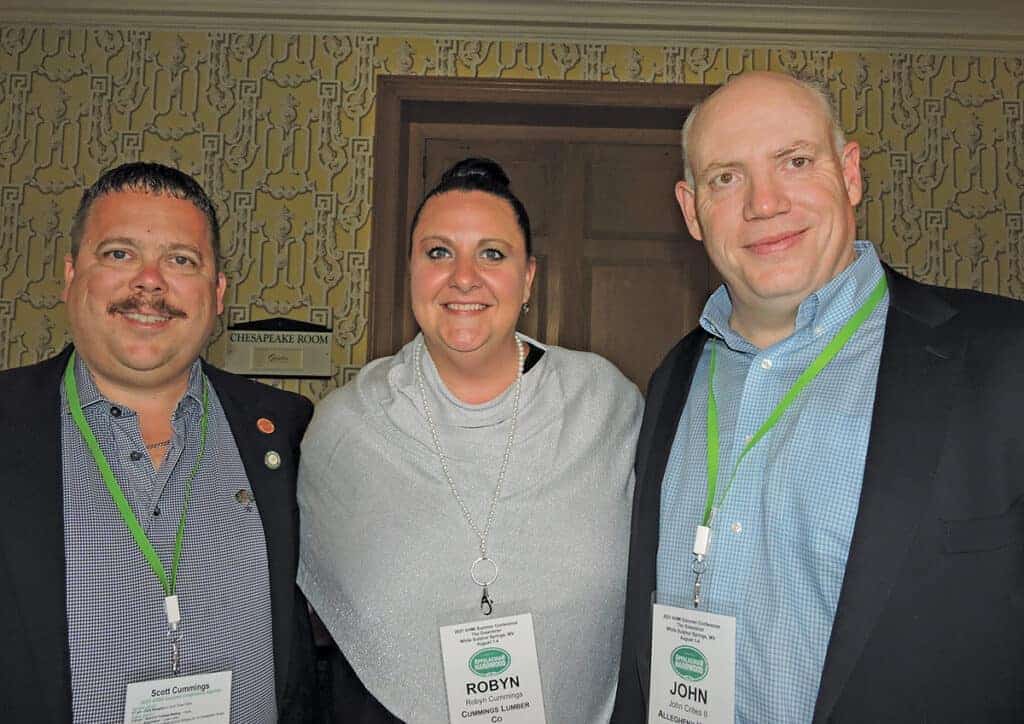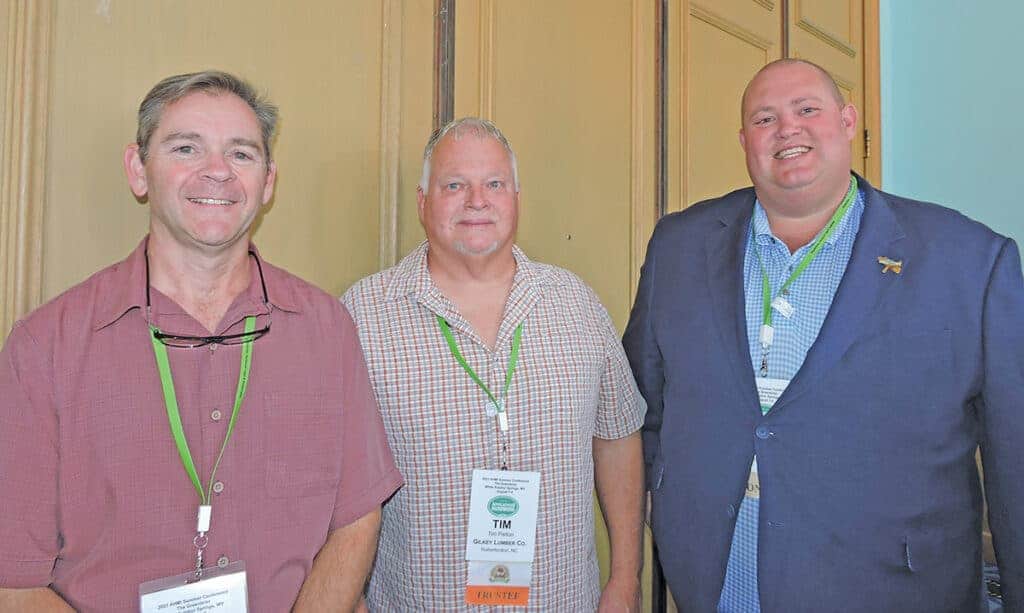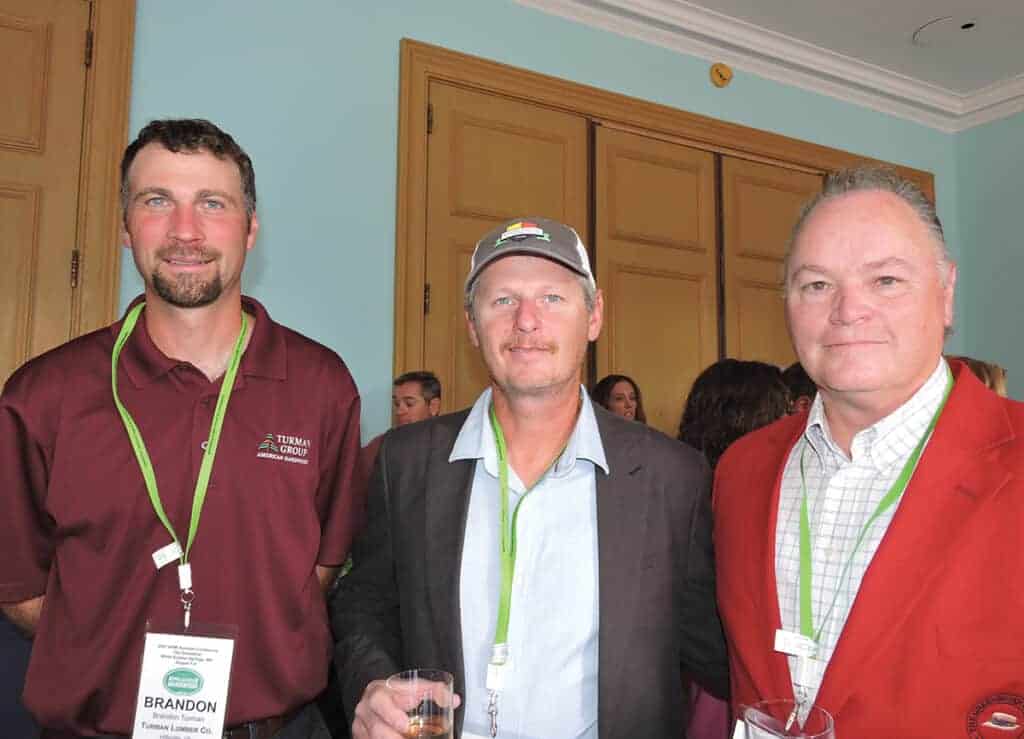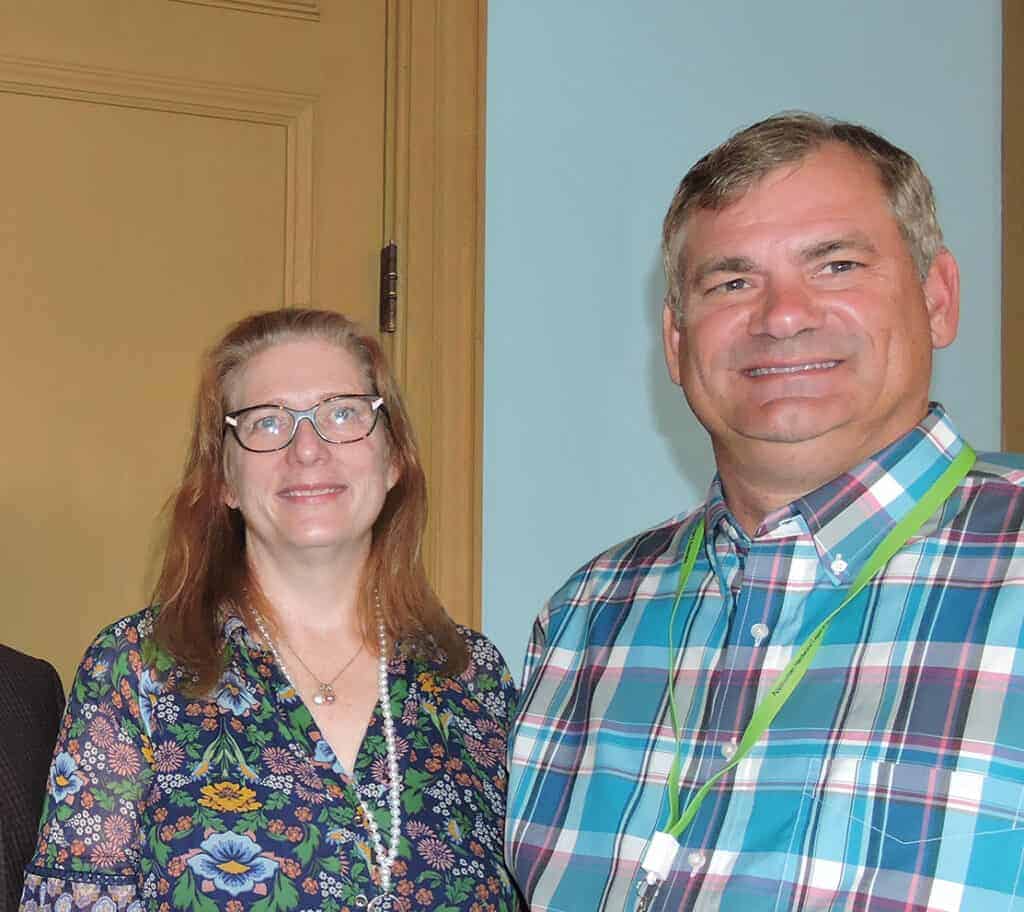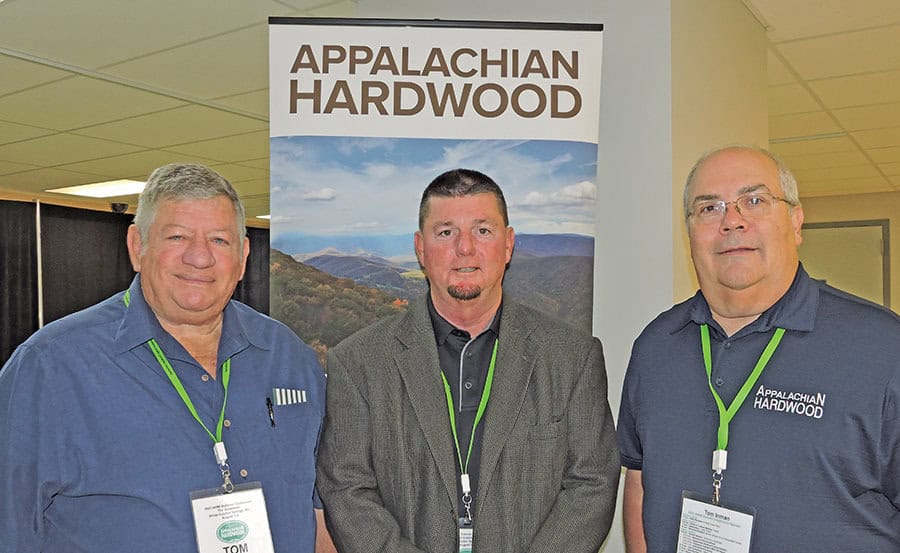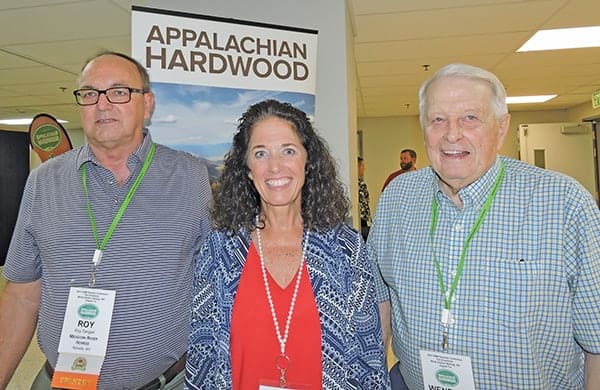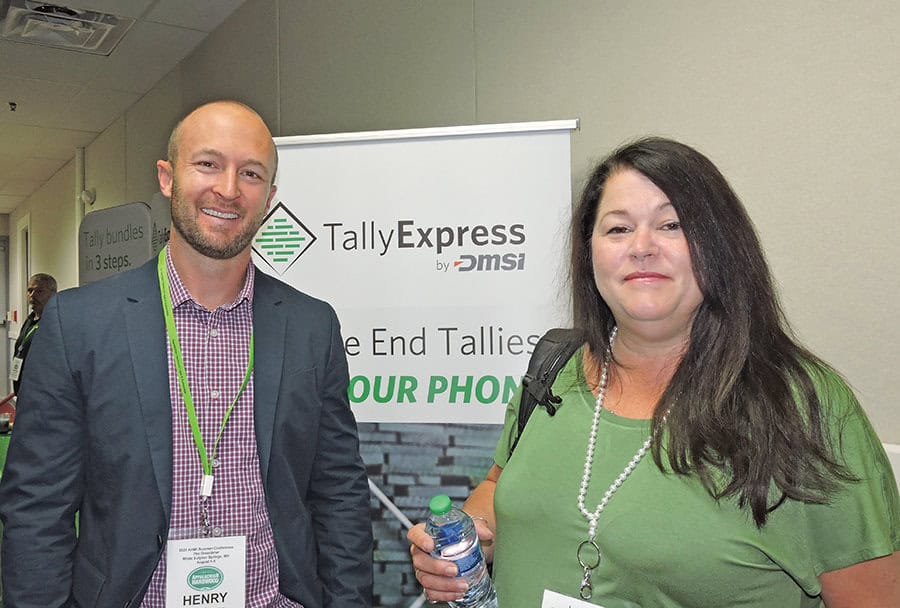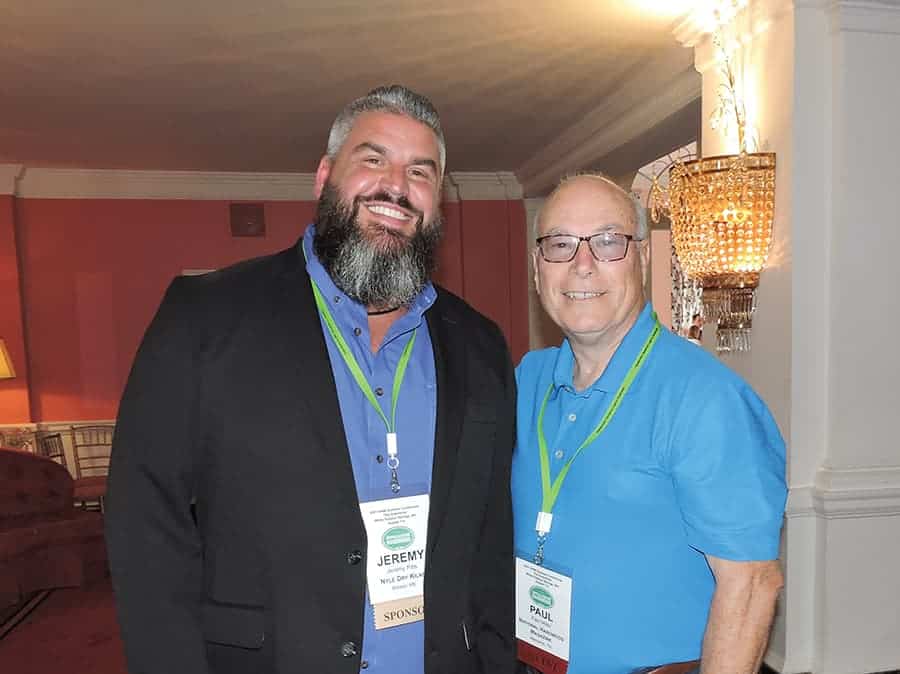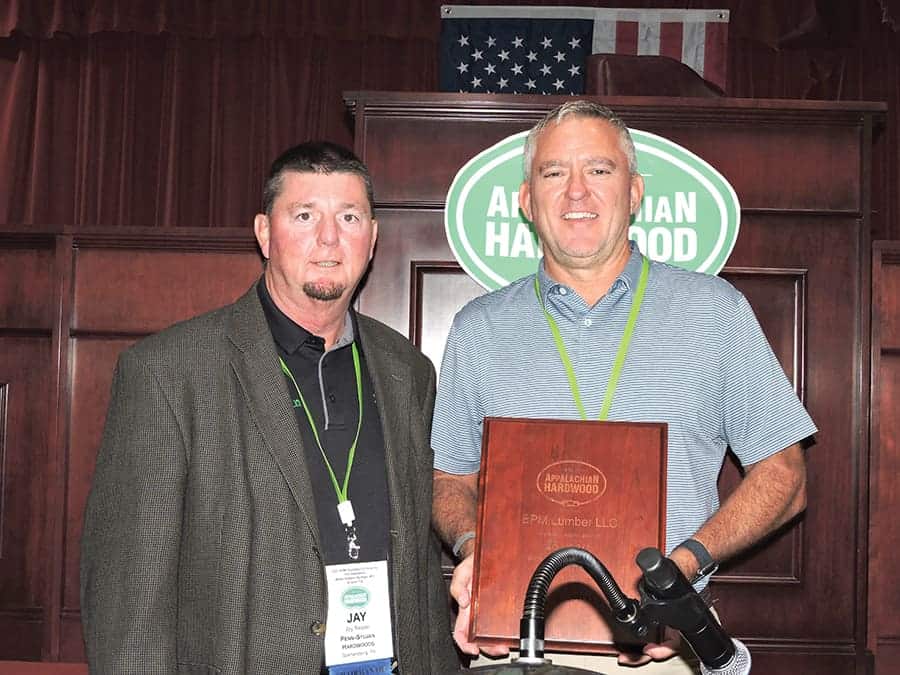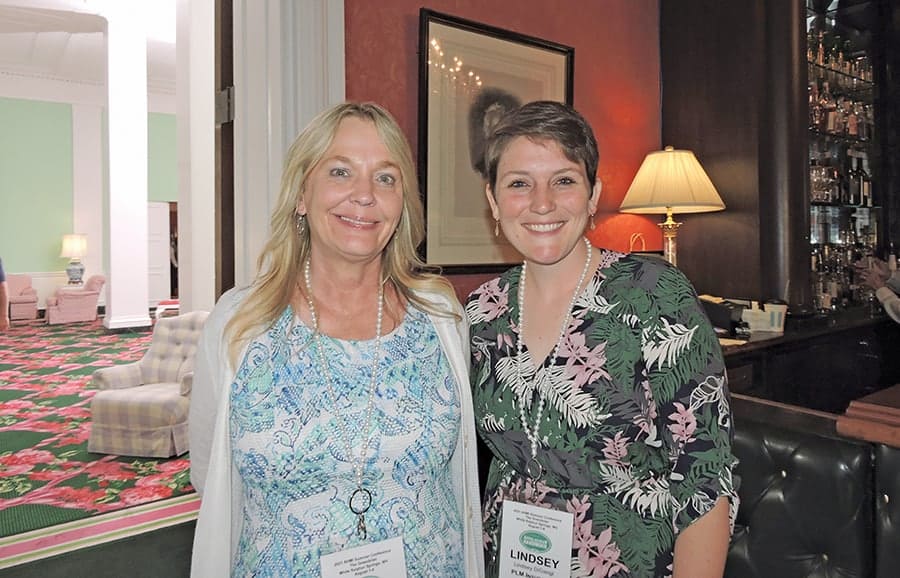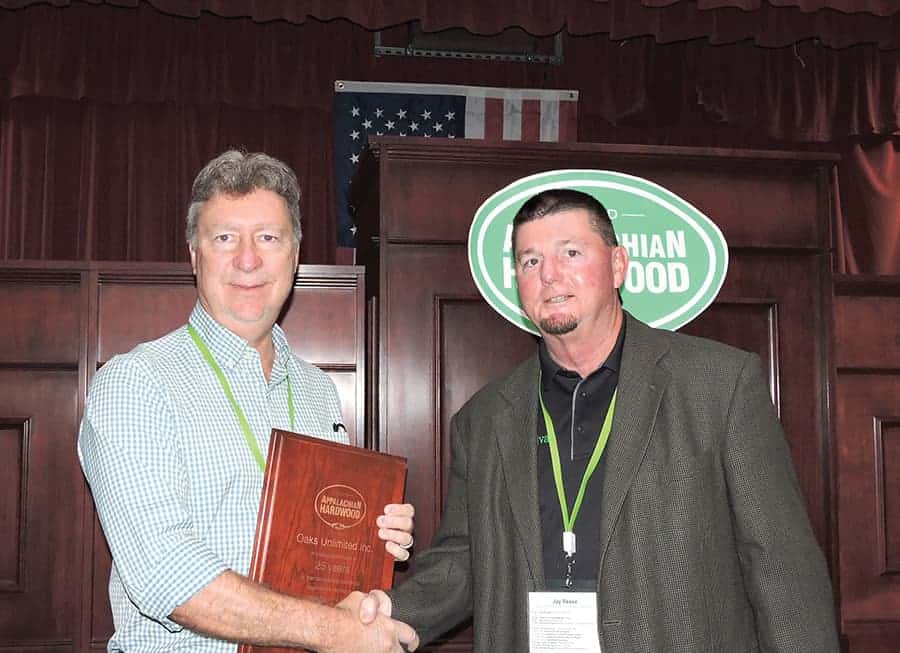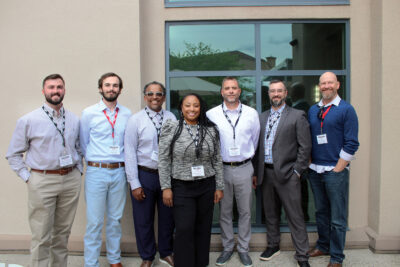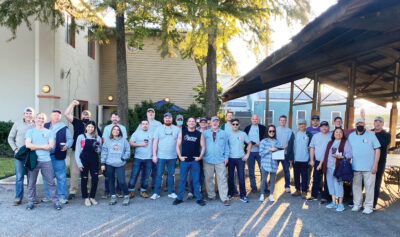Photos by Paul Miller Jr.
White Sulphur Springs, WV–The 2021 Appalachian Hardwood Manufacturers Inc. (AHMI) Summer Conference was deemed a great success with a crowd reminiscent of 10 years ago, timely business sessions and an upbeat attitude from everyone.
The Conference was held at The Greenbrier and expanded to two full days with business presentations on key Appalachian sawmill, yard and secondary manufacturing issues. The mood was positive as sawmills, secondary manufacturers and suppliers report sales increases for 2021.
The opening remarks were provided by Dr. John Rainone of Dabney S. Lancaster Community College (DSLCC) who is partnering with two other colleges and AHMI to develop the Appalachian Hardwood Training Institute. The group has applied for a grant from the Appalachian Regional Commission to train current workers and prospective employees on Hardwood sawmill and distribution yard jobs.
The lack of workers continues to limit production capacity for most mills. Potential workers are not aware of the industry or have little training. Rainone said the grant will fund curriculum development, course promotion and tuition assistance at DSLCC, Glenville State College in West Virginia and Big Sandy Community College in Kentucky.
Companies could send workers to one of the colleges or set up online training for more than a dozen areas which could include:
- Log/Lumber Grading and Scaling
- Hardwood Sawing
- Lumber Drying and Resaw Operation
- Lumber Drying Techniques
- Lumber Stresses, Figures, and Grading
- Log Yard Equipment Operation
- OSHA Safety and Environmental Monitoring
- Machinist, Welding, Electronics
- CDL – Class A and B
- Chainsaw Operation and Maintenance
It is expected that at least 75 companies will participate in the training and 80 percent of businesses will see an increase in productivity from workers, Rainone said. It is forecast that 90 percent of trainees will retain their jobs and an estimated 80 percent of trainees will improve skills.
The application has passed two levels of approval and is awaiting final action. Development would begin in the fall of 2021 and the first courses would be taught in the fall of 2022.
The plan is to expand the offerings to community colleges in all 12 Appalachian states. It is supported by Community Colleges of Appalachia and the American Association of Community Colleges.
COVID Hurts Logging Capacity In AHMI States
The executive director of the West Virginia Loggers Council says the COVID-19 pandemic has reduced logging capacity in the state and across the region.
Eric Carlson, who also is executive director of the West Virginia Forestry Association, discussed the impact at the 2021 AHMI Summer Conference. While the number of cases in the logging community are unknown, the reduction in sawmill demand and the lack of workers impacted loggers and logging companies in the past 18 months.
Carlson cited a 2020 study by the Northeast Center for Occupational Health and Safety that found that many loggers had participated in training or read materials about COVID-19. More than 60 percent said they would seek medical attention if they had symptoms.
The keys issues for West Virginia are:
- Workforce availability both skilled and unskilled
- Supply Chain Issues – Equipment, Trucks & Parts
- Workers Compensation – Barrier for Expansion
- Limited Options for Insurance
- Prices and Demand – Harvesting Shifts
Carlson said the number of loggers in West Virginia is down 12 percent since 2019. A high percentage of those companies fell trees by hand and health insurance options are low.
The future for logging does have positives:
- Logger and Log Trucking Relief Program ($2,000-$125,000 available)
- Increased Road Weight Limits using “pup” trailer on State Highways
- Logging and Sediment Control Act – 94 percent compliance
- Innovation in harvesting methods
AHMI members and guests toured the West Virginia Great Barrel Co. cooperage plant near White Sulphur Springs, WV. The company was formed in 2017 to create good jobs in The Greenbrier Valley and manufacture top-quality bourbon and whiskey barrels in one of the most advanced cooperage facilities, said President Phil Cornett. Its focus has been on minimizing variation in the barrel-making process using tight-grained Appalachian White Oak.
The company works closely with loggers, Cornett said, to selectively and sustainably harvest trees and quarter-sawn into staves. The wood is air dried at its stave mill in Monroe County, WV. It is delivered to the cooperage plant and conditioned in pre-dryers manufactured by SII Dry Kilns.
The plant is among the most technologically advanced in the world using robots and automation for many processes. Cornett said they are approaching 70 percent capacity and hope to achieve full capacity in coming months.
There were three update sessions for attendees:
Structural Grades for Hardwoods
Virginia Tech research Sailesh Adhikari provided an update on the Poplar Cross-Laminated Timber project and structural grades for Hardwoods. The project will build panels for testing and the results submitted to the APA for inclusion in U.S. building codes.
Six AHMI member companies donated Poplar that was ripped and surfaced to nominal dimensions for SmartLam to process and test. Adhikari presented results of testing that shows NHLA graded No. 2 Common and No. 3 Common Poplar achieved a higher structural grade than expected. The research is very positive for sawmills to produce structural materials.
Log Grading Guidelines
Curt Hassler of the West Virginia University Appalachian Hardwood Center presented details on the Log Grading and Scaling Guidelines that were developed by AHMI and the AHC. The booklet is the first update since the 1960s to general information on log grades and the changes caused by defects.
The Guidelines and presentation are available to AHMI members. There are also plans for other training workshops in coming months.
AHMI 401k MEP Program
The AHMI Plan has more than 20 companies enrolled and has grown to more than $33 million in investments. UBS Financial representatives shared information during the Conference with every attendee about their current plan and how it compares to the AHMI program. To date, every company enrolled has saved money on the administration and audit costs and lowered the fees on investments.
Learn more at www.appalachianhardwood.org.
